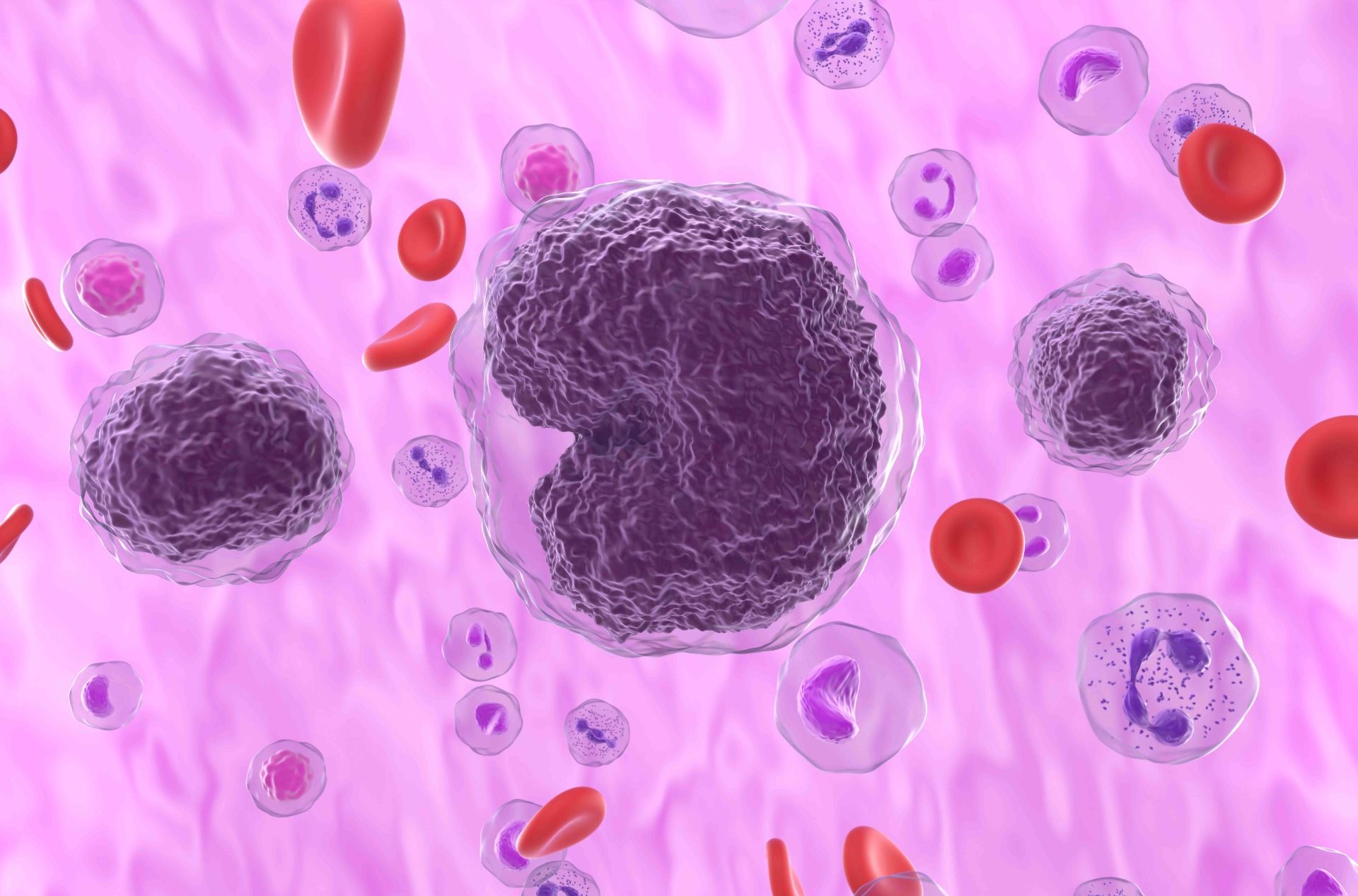- Center on Health Equity & Access
- Clinical
- Health Care Cost
- Health Care Delivery
- Insurance
- Policy
- Technology
- Value-Based Care
Salvage RT Shows Local Control in LBCL After CAR T-Cell Therapy Failure
Salvage radiation therapy (RT) showed efficacy in local control of relapsed or refractory large B-cell lymphoma (LBCL) following CD19-targeted chimeric antigen receptor (CAR) T-cell therapy failure.
Salvage radiation therapy (RT) showed efficacy in local control of relapsed or refractory (R/R) large B-cell lymphoma (LBCL) following CD19-targeted chimeric antigen receptor (CAR) T-cell therapy failure, according to findings published in Clinical Lymphoma Myeloma and Leukemia and presented during the Society of Hematologic Oncology Annual Meeting.1
The multi-institutional, retrospective study aimed to determine how salvage RT performs relative to other therapies as a treatment for R/R LBCL after CAR T-cell therapy failure, using a database of 352 patients with LBCL who received CAR T-cell therapy between 2017 and 2021. Patients received either axicabtagene ciloleucel (axi-cel), which is approved for LBCL refractory to frontline chemoimmunotherapy or that is relapsed within 12 months of frontline immunotherapy,2 or tisagenlecleucel (tisa-cel), which is FDA approved for R/R follicular lymphoma after at least 2 lines of therapy.3
Lymphoma cells | Image credit: LASZLO - stock.adobe.com

The study included 120 patients who relapsed following CAR T-cell therapy and received either RT alone, systemic therapy alone, or combined modality therapy (CMT) as salvage therapy. Researchers also conducted an analysis to compare outcomes among patients who received comprehensive RT compared with focal RT.
Median follow-up time was 10.2 months (IQR, 5.2-20.9) after CAR T-cell infusion. Of the overall patient population, 14 patients were treated with RT alone, 40 with CMT, and 66 with systemic therapy alone. In 78% of patients (n = 93), relapse occurred in sites involved prior to CAR T-cell therapy, and the median time from CAR T-cell therapy to salvage therapy initiation was 3.4 months (IQR, 1.7-6.5).
In 54 patients who received RT in either the CMT or RT alone cohorts, a total of 93 sites were treated with RT. The median dose was 30 Gy (range, 4-50.4), and median fractionation was 10 fractions (range, 1-28).
Among 81 assessable sites treated with RT alone or as part of CMT, the local disease control rate at 1 year was 85%, and the median overall survival (OS) from the time of salvage therapy in the RT group was not reached. OS from salvage therapy initiation in the CMT group was 10.5 months, and OS in the ST group was 6.6 months (P = .4).
From the start date of RT, median OS was 19.1 months among patients treated with comprehensive RT and 3.0 months in patients treated with focal RT (P ≤ .001). Out of 29 patients who underwent comprehensive RT, 26 only had a single disease site. Patients with more than 1 site did not have statistically significantly different survival. CAR T construct and whether a patient received bridging therapy were not significantly associated with OS from CAR T infusion, but multivariate analysis showed that experiencing a partial or complete response after CAR T-cell therapy was independently associated with better OS outcomes (HR, 0.5; 95% CI, 0.3-0.9; P = .01).
Overall, the researchers concluded that RT was effective at controlling local disease in patients with LBCL that has relapsed following CAR T-cell therapy infusion.
“Patients with limited disease burden who were treated with comprehensive RT had favorable OS relative to patients with more extensive disease who received focal RT," the authors wrote. "Future prospective studies should investigate combination of RT with other novel strategies, including lenalidomide, polatuzumab vedotin, loncastuximab tesirine, bispecific antibodies, and/or consolidation with allogeneic HSCT to optimize patient outcomes.”
Reference
1. Ababneh H, Ng A, Frigault M, et al. Salvage radiotherapy in relapsed/refractory large B‑cell lymphoma after CAR T‑cell therapy failure. Presented at: 2023 SOHO Annual Meeting; September 6-9, 2023; Houston, TX. ABCL-004.
2. YESCARTA (axicabtagene ciloleucel. FDA. Updated November 4, 2022. https://www.fda.gov/vaccines-blood-biologics/cellular-gene-therapy-products/yescarta-axicabtagene-ciloleucel
3. KYMRIAH (tisagenlecleucel). FDA. Updated July 7, 2022.https://www.fda.gov/vaccines-blood-biologics/cellular-gene-therapy-products/kymriah-tisagenlecleucel
What Would Make Therapy Last? How About 2 Targets Each on B Cells and T Cells?
January 10th 2026The CEO of ModeX Therapeutics discusses MDX2003, a groundbreaking tetraspecific therapy that promises enhanced efficacy and safety in non-Hodgkin lymphoma treatment. This exchange appears in the January issue of Evidence-Based Oncology, the annual recap of the meeting of the American Society of Hematology.
Read More
